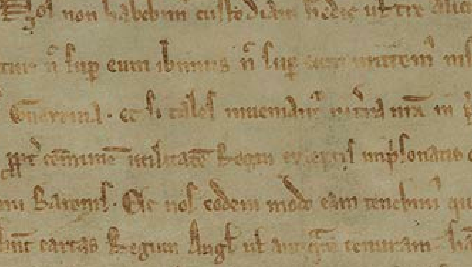 Magna Carta of 1215, at Runnymede signed by King John
Magna Carta of 1215, at Runnymede signed by King John
by Mary W Maxwell, LLB
We now continue yesterday’s article, quoting at length from William Geldart’s 1907 work, Elements of English Law. That book is still in print, although Oxford University Press has re-named it Introduction to English Law.
I prefer “elements.” By explaining the elements, Geldhart manages to show why laws in England are what they are. Laws in England? What about Australia? Australia has the same elements of law. English law is enjoyed by Canada, the US, Oz, and other countries.
How lucky we all are to have this great heritage.
The article of March 16, 2017 “What Hath Martin Bryant Wrought” came about in reflection of the Adelaide Fringe show of March 15 — “Moot Court Trial for Martin Bryant.”
Granted, Geldart’s Elements of English Law may not seem completely on point, but after 20 years we are still needing to look at the crimes that were committed that weekend in Tasmania, April 28 and 29, 1996, and understand who is liable for the terrible injuries of Port Arthur.
This article is from Chapter 8, “Crimes” of Geldart’s book. Yesterday we covered sections 1 through 4, on classification of crimes and their penalties. Now for sections 5 through 7: general principles of criminal law, high treason, and unlawful assembly and riot.
Note: There are many updated editions of Elements of English Law. I am quoting the 1927 edition because it is the one available online at archive.org. I also have in my hand the 1966 paperback, edited by D Yardley, and can vouch that it does not deviate significantly. The ’Twenties are still in force!
5. General Principles
The Criminal Law consists for the most part of the definition (often elaborate and even verbose, especially when Statute Law intervened) of the conduct which is necessary to constitute a crime, and the number of species and varieties of crime is so large that no detailed account is here possible, nor would a bare enumeration serve any useful purpose.
There are some immoral and dishonest acts which, whether for good reasons or bad, incur no punishment; but in general the prohibitions of the criminal law correspond with the moral sense of the community, and with few exceptions crimes are acts from which every man knows that he ought to refrain.
It will be enough to say something of the general principles of liability, and to deal with a few points of interest in connexion with particular crimes.
In general the law punishes only acts and not omissions. The cases where an omission to perform a legal duty amounts to a crime arise chiefly in connection with homicide, and will be dealt with under that head. Further, an involuntary act, such as that of a person walking in his sleep, involves no criminal liability.
An act done under compulsion or under stress of necessity is still a voluntary act, and it is only in extreme cases that necessity or compulsion can be pleaded as a defence to a criminal charge. It was held that shipwrecked sailors who killed a boy in order to preserve their lives by eating his body were guilty of murder. Coercion by threats of instant death or grievous bodily harm may excuse participation in a crime.
The presumption or fiction of coercion of a wife by her husband has already been mentioned. It is hardly necessary to say that the fact that an act is done from a sense of moral or religious duty is no defence.
Ignorance that an act is criminal is no excuse. In some cases, however, the definition of a crime requires that the offender should know that he is violating some private right, and here ignorance even of a general rule of law may be material. Thus the taking of another’s goods is no offence (though it is a civil wrong) if it is done in assertion of a supposed right. Ignorance of fact, on the other hand, is to a very large extent a complete defence.
A person who acts in the honest and reasonable belief that facts exist which would make his act entirely innocent, incurs no liability in the case of all the more serious crimes. A woman who married, honestly and on reasonable grounds believing that her first husband who had left her was dead, was held not guilty of bigamy, although he had not been absent for seven years, in which case she would have been expressly protected by statute.
On the other hand, where a crime is so defined by statute that some circumstance is an essential part of it, the question may arise whether the intention was to punish the act whenever accompanied by the circumstance specified, or only when done with knowledge of the circumstance. To pass false money unwittingly is no offence; to sell adulterated food is an offence, though one believes it to be unadulterated. In some cases it seems to be material that the act, even if done in the circumstances supposed by the prisoner to exist, would have been criminal or illegal, and perhaps even that it would have been immoral.
This is indeed expressly provided by statute. The word “maliciously” means no more than that the act must be done intentionally and without justification or excuse or claim of right.
Malice in connexion with criminal libel has the same meaning as in the law of torts. The meaning of “malice aforethought” in relation to homicide will be discussed later.
Something has already been said as to principals and accessories before the fact. They are all equally punishable. An accessory after the fact is one who knowingly receives, comforts, or assists a felon in escaping punishment.
Such an accessory is liable in all cases to a maximum punishment of two years’ imprisonment, except that in the case of murder the maximum is ten years’ penal servitude. In treason, all parties to the crime (even one who in other crimes would be an accessory after the fact) are treated as principals.
In misdemeanours there can be no accessory after the fact, but others participating in the crime are treated as principals.
The law punishes not only crimes actually committed, but also steps towards the commission of a crime which may never be completed. Such steps are incitements, attempts, and conspiracies.
It is impossible to define precisely how closely an act must be connected with an intended crime to constitute an attempt. In practice little difficulty seems to arise. Procuring dies for the purpose of coining false money is an attempt to commit that crime; buying a pistol in order to commit a murder would not be an attempt to murder.
It is now settled that an act may be an attempt, though the commission of the crime was from the beginning impossible, e.g. there may be an attempt to steal from an empty pocket.
Any agreement between two or more persons to commit a crime is a conspiracy, but an agreement may under certain conditions be a conspiracy, even though the act agreed to be done is not a crime at all, but merely a civil wrong, a breach of contract involving serious public mischief, or even an act not illegal but grossly immoral or publicly injurious.
6. High Treason
Of the forms of High Treason defined in the Treason Act, 1351, only three are now of practical importance: “Compassing or imagining the King’s Death,” “levying war against the King in his realm,” and “adhering to the King’s enemies in his realm, by giving them aid and comfort in the realm or elsewhere.”
These words have been overlaid by a mass of judicial interpretation, the effect of which has been to convert treason from being mainly a breach of personal allegiance into a crime against the security of the State.
With regard to the first of these, the “imagining” which seems at first sight a mere matter of intention, must, as is shown by the words of the statute itself, be proved by “open deed,” which includes writing and printing, but not mere spoken words, unless they are spoken in furtherance of the intention which they express. It is settled that to constitute imagining the King’s death it is sufficient if there is an intention to depose, or even an intention to levy war against the King, or to incite foreigners to invade the King’s dominions.
“Levying war” again has been extended by Judicial interpretation so as to include insurrections against the Government, insurrections intended to intimidate Parliament, and even insurrections for any general public object (e.g. in the eighteenth century it was held treason to cause an insurrection for the purpose of destroying all dissenting meeting-houses).
The offence can only be committed by a British subject, or by an alien who is for the time being in the King’s dominions and under his protection. A British subject cannot obtain immunity to fight against his country, by becoming naturalised in a hostile state when war has broken out or is on the point of breaking out.
Many of the interpretations put upon the statute were highly artificial, and had the result, especially at the end of the eighteenth century, of inducing juries to acquit the accused rather than find them guilty of an offence for which the only punishment was death, and, until 1814, death accompaniedd at least nominally by barbaric cruelties. Consequently some of the less serious forms reason (though still punishable as such with death) have been constituted felonies punishable with a maximum penalty of penal servitude for life.
During the last quarter of a century only one prosecution for treason (arising out of the South African War) has taken place in this country.
7. Unlawful Assembly and Riot
An unlawful assembly is an assembly of three or more persons who meet with the intention of committing a crime likely to involve violence, or of carrying out any common purpose (lawful or unlawful) in such a manner as to afford reasonable grounds for apprehending a breach of the peace.
But if the object of the meeting is lawful there must at least be something violent or provocative in its conduct. An entirely peaceable procession of Salvationists was held not to become an unlawful assembly, because a band of roughs calling themselves the Skeleton Army intended to make, and in fact did make, attacks upon it.
A riot is an unlawful assembly which has begun to execute its common purpose by a breach of the peace and to the terror of the public.
Unlawful assemblies and riots are misdemeanors punishable by fine and imprisonment, in the latter case with hard labour. But under an Act of 1715, if twelve or more persons continue “unlawfully, riotously, and tumultuously assembled together “for more than an hour after a proclamation in words prescribed by the Act has been made by a sheriff or magistrate, they are guilty of felony, and incur a maximum punishment of penal servitude for life.
The same penalty attaches to persons obstructing those whose duty it is to make the proclamation.
It is sometimes thought that no forcible measures to suppress a riot can be taken until the proclamation has been made and an hour has elapsed. This however is a mistake. The statute no doubt gives an indemnity to those who, after the time has elapsed, use force in dispersing or arresting the rioters, even if some innocent person is unavoidably killed or injured.
But the taking of all necessary steps, even to the shedding of blood, for the preservation of the peace, is both a matter of right and of duty at all times; and while the duty is one specially incumbent on magistrates and constables, they may require every citizen, and for this purpose soldiers are but citizens, to lend them assistance; in the absence of such officers the duty may fall directly on private persons present.
— Mary W Maxwell says Yay to the above, and promises to make connections of it to the Port Arthur case.
Photo credit: bl.uk (the British Library)






























Anybody want to hold forth on this criterion for committing treason:
“adhering to the King’s enemies in his realm, by giving them aid and comfort in the realm or elsewhere.”
Who are “the king’s enemies”? Who –ontologically — is the king?
If the King is the ultimate bastion of power the enemies would have to be those who are simply not impressed
You crack me up, Berry. Every time.
Bringing to bear this information on the Port Arthur situation,
John Howard and Damien Bugg are both guilty of the crime of “accessory after the fact” as they both had knowledge that Martin Bryant was innocent. So they knew their actions would protect the real gunman.
Both of the above could also be charged with the crime of high treason.”These words have been overlaid by a mass of judicial interpretation, the effect of which has been to convert treason from being mainly a breach of personal allegiance into a crime against the security of the State.”
Go, Mal Hughes!
Do it, Mal.
I’m going to have to chew on this information for awhile.
Bottom line, Spec: The law is a poweful weapon that we can use. But stashed in the cupboard it has no value.
Problem is as I learned during the last US presidential election, 1% of the 1% seem to have a general immunity from the law.
This is because it relies on one of the 1% to commit a sin against another member of the 1% of the 1% to set the train in motion.
Kevin (not Kevin Woodman), the word “it” in your last sentence. What is the referrent?
And what is preventing you from setting the train in motion?
Remember “the little engine that couldn’t”?
Re Port Arthur, Cherri Bonney didn’t wait for somebody to set the train in motion.
“… or imagining the King’s Death,”
If i plead guilty, and I do, verily.. do I get a trial ?
Fair, a lot of water went under the bridge since England’s law against treason was written. Here’s the current situation for Oz:
In Australia, the Constitution of 1901 did not mention treason, but Parliament included it in the Crimes Act of 1914, and moved it into the Criminal Code as part of 2002 anti-terrorism law. Part 5.1, Division 80.1 of the Code now says:
“(1) A person commits an offence, called treason, if the person:
(a) causes the death of the Sovereign, the heir apparent of the Sovereign, the consort of the Sovereign… or
(d) levies war, or does any act preparatory to levying war, against the Commonwealth; or
(e) engages in conduct that assists by any means whatever, with intent to assist, an enemy: (i) at war with the Commonwealth…or (f) …to assist: (i) another country; or (ii) an organization … engaged in armed hostilities against the Australian Defence Force….
Penalty: Imprisonment for life.
(2) A person commits an offence if the person:
(a) receives or assists another person who, to his or her knowledge, has committed treason with the intention of allowing him or her to escape punishment or apprehension; or
(b) knowing that another person intends to commit treason, does not inform a constable of it within a reasonable time or use other reasonable endeavours to prevent the commission of the offence.
Penalty: Imprisonment for life.”
Fair, it is no longer enough for you to lust in your heart. You have to actually do it.
Persons interested in the Port Arthur matter may wish to study the above list. Innumerable people could be indicted. Maybe for the Sydney siege also? And let us not forgt Bali, 2002.
Fair, anyone charged with treason would defo get a trial.
thanks Mary.
I cant say how I really feel because of the howard/beazley sedition laws,
Seditious Intention
Section 24 defined a seditious intention as [a]n intention to effect any of the following purposes:
(a) to bring the Sovereign into hatred or contempt;
(d) to excite disaffection against the Government or Constitution of the Commonwealth or against either House of the Parliament of the Commonwealth;
(f) to excite Her Majesty’s subjects to attempt to procure the alteration, otherwise than by lawful means, of any matter in the Commonwealth established by law of the Commonwealth; or
(g) to promote feelings of ill-will and hostility between different classes of Her Majesty’s subjects so as to endanger the peace, order or good government of the Commonwealth;
then again, i dont have to, with their illegal immoral war mongering based on lies, they bring hatred, contempt, and promote ill-will and hostility upon themselves?
give them a trial and then hang them.
Got this from aph.gov.au (“Last prosecutions” of sedition):
After the W.F. Burns case, there appear to be no more successful prosecutions under the Crimes Act. However, the last federal prosecution and jailing for sedition was in 1960, when Department of Native Affairs officer Brian Cooper was prosecuted for urging ‘the natives’ of Papua New Guinea to demand independence from Australia. He was charged under the Criminal Code (Qld) which at the time extended to Papua New Guinea. He was convicted and sentenced to two months imprisonment with hard labour. He committed suicide four years after losing his appeal to the High Court (Cooper v. The Queen [1961] HCA 16; (1961) 105 CLR 177) in 1961.
Don’t do it, Fair. You have your whole life ahead of you….
The establishment is in a state of constant flux of treason, the will of the people are frustrated by establishment and can only rule by propaganda in promises to save the people, such as slogans as I will support the forgotten? the establishment are here for one thing to protect the 1% and to be paid handsomely for destroying the will of the people, the establishment can as the culture is, can only be a act of treason, but we are so familiar with this act it is today seen as being what is called reality? or get real?
I also have in my hand the 1966 paperback, edited by D Yardley.
Hang on to it Mary for I have read there are people from a very small but very powerful country in the middle east who have large libaries of hard copy books. They have them, it seems, because they know that many online books are fiddled with surruptiously.
From what I read, its done for the purpose of shaping histroy to the preferred mould, to restrict knowledge they dont want others to know and to prevent access to the wisdom of the achients. Its also done discredit current writers who say things they dont want said.
Yes books are fiddled with online. Yes it’s a worry.
Are you having a dig at the Jews? How about the University of Adelaide Library? It has a million hard copy books. Not run by Jews as far as I am aware.
Dont know anything about the Adelaide Libary Mary but I have read in several different locations and at different times that uncomfortable (large) numbers of hard copy books are being thrown out of libaries and burnt in many parts of the world and it seems to be a continuing activity.
If asked why this occuring I would imagine the explanation would be that no one reads them and no one wants them which is likly to be true to some exent. However, they are important and not every hard copy book may necessarily have an electrconic version it.
Given they are a libary, is that not their task to hold and preserve books for future back up reference?
Once they are gone they are gone for ever. The world will then be forever dependant on editable electronic documents. If people have the motives I suggest, irrspective of their nationality, then it follows that such people would like to control libaries one way or another where ever they can so they can get rid of the hard copy books they dont want around.
Are you aware of any other group of people who, compartively speaking, are known to have large hard copy libaries at home?
Mind you I suppose people n cold climates have quite a few hard copy books but then they would also have that remotely programed and operated weapon of mass deception and social conditioning so perhaps they dont.
I am in full agreement except your last two paragraphs which I don’t understand. I do know libarries everywhere are throwing out books but I have never heard that someone is doing the opposite. How is it that you have become aware of that?
I blame moms and dads if they dont give their kids some books to have and to hold. i can’t be bothered blaming Jews.